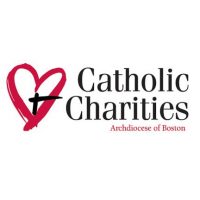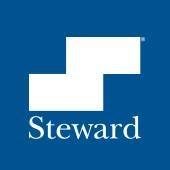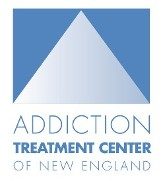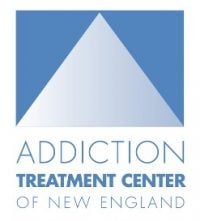Hurley House - Recovery Home
Drug Rehab Center in Waltham, Massachusetts
Hurley House - Recovery Home in Waltham, MA offers an accredited, state-licensed drug rehab program that provides multiple levels of care, including inpatient, sober-living/halfway and residential services, along with aftercare support to help patients maintain sobriety.
About Hurley House - Recovery Home in Massachusetts
Hurley House, a private rehab nestled in Waltham, Massachusetts, has been dedicated to helping individuals overcome alcohol and drug addiction. With a history of providing comprehensive treatment, Hurley House offers a supportive environment for those seeking to break free from the chains of substance abuse.
- Accredited by SAMHSA and holding a State License, ensuring high-quality care
- Offers a range of treatment options, including inpatient, residential, and sober-living/half-way programs
- Provides aftercare support to promote long-term success in sobriety
- Dedicated team of professionals delivering personalized drug rehab services
Recognized by SAMHSA and licensed by the state, Hurley House meets rigorous standards of care. Their multidisciplinary team of professionals is committed to guiding individuals through the recovery process, offering a comprehensive range of services tailored to each person's unique needs.
At Hurley House, individuals struggling with alcoholism, opioid addiction, substance abuse, and drug addiction can find the support they need. The facility provides various levels of care, including inpatient treatment, residential programs, and sober-living/half-way options. By offering a structured environment and evidence-based therapies, Hurley House aims to help individuals build a strong foundation for lasting recovery.
Genders
Ages
Modality
Additional
Accreditations
State License
SAMHSA
Conditions and Issues Treated
Substance abuse is a severe problem that affects many people in Waltham, MA. It is characterized by the excessive and inappropriate use of drugs, including alcohol, medications, and illicit drugs. Substance abuse can lead to physical or psychological dependence and affect social life and relationships. Treatment options include medications, counseling sessions, behavioral therapy, and group therapy. If you are suffering from substance abuse, contact for the latest treatments available.
Opioid addiction is when someone becomes addicted to opioids. This can happen quickly due to any opioid use. Opioid withdrawal can be uncomfortable and lead the user to continue using even if they want to quit. It’s best to receive inpatient treatment for detoxification.
Even if a person doesn’t need inpatient treatment, it’s recommended to start rehabilitation or at least some kind of outpatient treatment. This is because the withdrawal symptoms from opioids can be uncomfortable and unpleasant, to the point that a person could end up using again or worse.
Detoxification should be done to break the physical addiction of opioids. This can be done with opioid replacement therapy, medication-assisted therapy, or a more traditional detoxification program. Intensive outpatient treatment is a form of addiction care that allows patients to continue living at home while undergoing treatment. This type of care is appropriate for patients who have been treated in residential treatment programs. Intensive outpatient programs include regular visits to the facility providing therapy, and patients gradually return to their routine life. IOP benefits most when patients have a supportive family member or friend to help them recover.
The first step to getting into an intensive outpatient program is to attend a detoxification facility. Detoxification facilities are designed to remove substances from the body safely. The patient will attend sessions designed to help them understand their addiction and its impact on their lives. While in an intensive outpatient program, therapy sessions are scheduled three to five times per week, with the patient attending no more than two sessions in one day.
Levels of Care Offered
This center offers a variety of custom treatment tailored to individual recovery. Currently available are Aftercare Support, Drug Rehab, Inpatient, Residential, Sober-Living / Half-Way, with additional therapies available as listed below.
Inpatient facilities offer a complete rehab program where the patient stays for an extended period. This allows the staff to monitor the patient on a round-the-clock basis and provide medical assistance if needed.
A significant benefit of inpatient rehab is that it allows for a safe environment for treatment. The patient doesn’t have access to drugs or alcohol, and they’re surrounded by people that want them to succeed and change their lives. Treatment starts with detox and behavioral therapy, followed by group therapy and family involvement.
Sober living homes are transitional houses for recovering addicts who need more structure than they would receive in an aftercare program. Specific rules and regulations are enforced in these homes, which are beneficial for people who need a greater degree of structure than other types of treatment.
Sober living home options include:
- Live-in managers – might be beneficial to people who do not have a support system in place at home, or who experience high levels of stress between work and home life.
- House managers – House managers are beneficial for people who do not have a strong social network to rely on, or who are concerned about relapse in their daily lives.
- House parents – House parents are beneficial to people who reside in areas without a strong aftercare program for support.
Residential treatment programs are those that offer housing and meals in addition to substance abuse treatment. Rehab facilities that offer residential treatment allow patients to focus solely on recovery, in an environment totally separate from their lives. Some rehab centers specialize in short-term residential treatment (a few days to a week or two), while others solely provide treatment on a long-term basis (several weeks to months). Some offer both, and tailor treatment to the patient’s individual requirements.
Aftercare support is often overlooked in the treatment of drug and alcohol addiction. However, it’s an essential part and should be considered when planning a course of rehab.
Aftercare is a term that’s used to refer to any sort of continuing care offered for a drug addict who has voluntarily entered a rehabilitation program. This type of care can be provided in several settings, including outpatient therapy sessions after the addict has completed an inpatient program. There are also 12-step support groups, such as Alcoholics Anonymous, which can provide additional help for addicts trying to stay sober.
Aftercare is vital because addicts often face many challenges as they attempt to recover from drug addiction or alcoholism. Because of the powerful nature of these addictions, those who struggle with a drug or alcohol problem will likely have to face the craving for their substance of choice for the rest of their lives. Recovering can be a lonely and frustrating endeavor, especially without the support of others who are going through similar situations.
Therapies & Programs
Individual Therapy is a crucial component of addiction recovery. Therapists work with patients to identify the root of their addiction and figure out how to better handle the issues that led to them using drugs. Individual Therapy is one on one sessions where people meet with their therapist. Individual therapy provides a safe space for people to open up and discuss personal and sensitive topics which they may not feel comfortable discussing in a group setting.
In this type of therapy, therapists can develop specific solutions for each patient, which helps speed up their recovery process. In addiction recovery, therapy is a crucial part. It allows patients to go deep into their core issues and discover how those problems can be better handled now. Therapy can be performed in individual sessions as well as group settings. In individual therapy for addiction, the patient meets with the therapist one-on-one to focus on the underlying issues of addiction and come up with solutions to prevent future abuse.
Addiction can take a heavy toll on relationships, damage the trust and intimacy that was once there. Couples therapy at Hurley House - Recovery Home helps to rebuild the trust and intimacy that has been damaged. An intimate relationship with a drug addict is not healthy for children or anyone in the family. Therapist help to rebalance family roles and create a healthier environment after rehab in Waltham, MA.
Family therapy is a crucial part of drug treatment and getting sober. It is one of the most effective ways to help addicts stay on the path to long-term sobriety. One of the most important parts of family therapy is the relapse prevention plan. During treatment, therapists and doctors will often sit down with the addict and their family to develop a plan if the addict ever feels like they want to use again. This plan should involve steps the addict and family can take together to prevent them from relapsing in the future.
An addict’s family can play a vital part in helping them to avoid relapse because they can spot the warning signs and help them get back on track before it becomes too much of a problem. Family therapy is one of the most effective ways to help addicts stay on the path to long-term sobriety.
Group Therapy is employed by drug treatment centers like Hurley House - Recovery Home to provide the recovering addict with a platform to talk about their feelings and experiences. It also provides for an opportunity to learn from other addicts who have successfully overcome their addiction. It is recommended that all group members be recovering addicts for this type of therapy to work.
This type of therapy involves the use of a variety of therapeutic techniques to help addicts recover from past traumas that might have triggered their substance abuse. During these sessions, therapists will work with the addict to address painful memories and learn how to cope effectively with stressors as they arise.
During these types of sessions, therapists will typically focus on three main goals:
- Identifying and expressing painful emotions associated with past traumas.
- Reducing the effects of stress on an addict’s life by developing more effective coping mechanisms.
- Developing healthy ways of thinking about stressful situations that can help addicts avoid substance abuse issues in the future.
This type of therapy is typically used in conjunction with other types of addiction treatment services. By identifying and dealing with the root cause of addiction, most addicts can overcome their cravings and prevent relapse once they leave rehab.
Many different types of addiction treatment services exist to help addicts safely get sober, but it’s important for recovering individuals to find a therapist or support group that will help them address the root cause of their addiction.
Dialectical behavior therapy (DBT) is a type of cognitive behavioral therapy that is focused on helping those with problematic behaviors caused by intense emotions and thoughts control and regulate their emotions and behavior.
Dialectic Behavior Therapy is beneficial for:
- People who have chronic suicidal thoughts and behaviors
- People who have chronic drug cravings
- People who have difficulty establishing and maintaining personal relationships
- People who have a mental disorder such as Borderline Personality Disorder
- People who have experienced trauma in their life
Cognitive Behavioral Therapy (CBT) is an approach and method in psychotherapy. Hurley House - Recovery Home asks people to investigate how their thoughts, including habitual, harmful, and inaccurate ways of thinking, affect behaviors. CBT is based on the idea that rigid, inflexible ways of thinking cause people to have a limited ability to cope with stress, which leads to emotional distress.
Likewise, CBT helps people identify maladaptive behaviors and replace them with more positive behaviors. It makes you look at the way you perceive something and ask: Is this a realistic belief? CBT asks people to look at the role of behaviors and emotional responses and how they may be distressing in one’s life. The goal of CBT is to change the way people think and behave to achieve a more balanced, healthier lifestyle.
Moreover, CBT has been shown to reduce some types of anxiety disorders, depression, and symptoms related to thoughts or actions that are considered harmful.
Rational Emotional Behavior Therapy (REBT) offers benefits to addicts in a wide range of situations. This type of therapy helps individuals better understand their emotions and how to manage them in a healthy way.
Individuals who have used addiction treatment services have found this type of therapy beneficial in the following ways:
- Helps individuals identify, understand and manage their emotions in a healthier way
- Assists addicts in developing coping skills to help avoid relapse
- Encourages increased tolerance and less judgmental thinking
- REBT combines cognitive and emotive techniques to help individuals overcome harmful, self-defeating behaviors.
Life Skills Services provide services aimed at helping people enter into and maintain long-term sobriety. The services are offered at varying levels of intensity, specific to the needs and requirements of each patient. Some benefits of these services are restoring hope and empowerment, enhancing family involvement, increasing patient compliance, and reducing relapse rates.
Training someone on improved life skills allows someone recovering from an addiction to feel more capable of taking care of him or herself. The skills taught in Hurley House - Recovery Home are daily skills that give a better recovery foundation by simply giving the person tools they need to survive.
Payment Options Accepted
For specific insurance or payment methods please contact us.
Additional Details
Specifics, location, and helpful extra information.
Waltham, Massachusetts 2454 Phone Number(781) 891-4323 Meta DetailsUpdated April 15, 2024
Staff Verified
Hurley House - Recovery Home Patient Reviews
There are no reviews yet. Be the first one to write one.
Waltham, Massachusetts Addiction Information
Massachusetts has one of the highest rates of drug abuse in the country. More than half a million Massachusetts residents abuse alcohol while more than 1.5 million use illegal drugs each year. This drug and alcohol usage is the cause of over 8% of all deaths in the state. In 2017, Massachusetts ranked in the top 10 of the states with the highest opioid overdose rates.
Waltham, Massachusetts, has a population of 60,000 people. There were 26 deaths due to drug overdose in Waltham in 2017. This is a rate of 43.3 deaths per 100,000 people. Over 1,800 emergency room visits in Waltham related to drug abuse in 2014. This cost the community over 6 million dollars. Most drug rehab programs in Waltham, Massachusetts, offer various services such as individual and group therapy, medication management, and educational classes.
Treatment in Nearby Cities
- Salem, MA (20.0 mi.)
- Pembroke, MA (30.0 mi.)
- Ipswich, MA (29.3 mi.)
- Belchertown, MA (60.0 mi.)
- Oxford, MA (36.8 mi.)
Centers near Hurley House - Recovery Home
The facility name, logo and brand are the property and registered trademarks of Hurley House - Recovery Home, and are being used for identification and informational purposes only. Use of these names, logos and brands shall not imply endorsement. RehabNow.org is not affiliated with or sponsored by Hurley House - Recovery Home.










